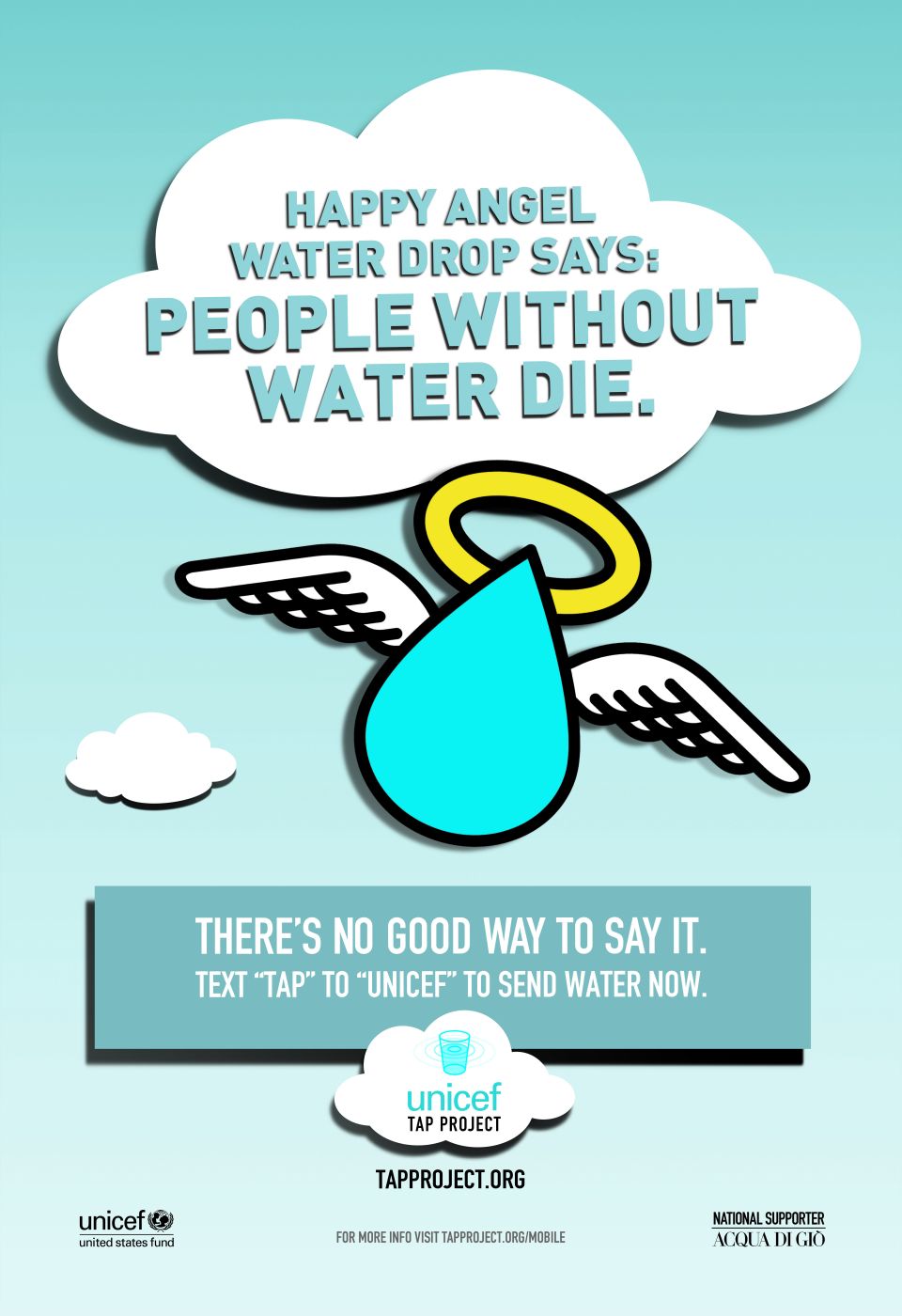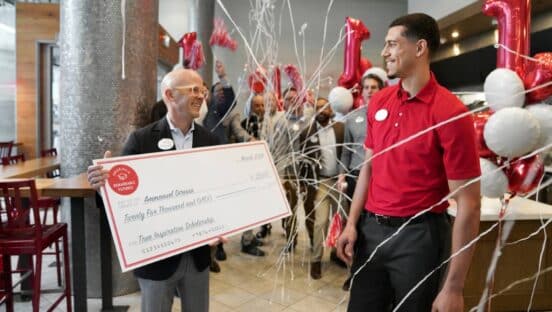Next month, hundreds of restaurants across the country will ask their patrons to pay for their tap water to quench the thirst of people they have likely never met.
That’s because March 21 marks the beginning of World Water Week and the start of the fourth annual UNICEF Tap Project. Launched in 2007, the Tap Project has restaurants ask their customers to donate $1 or more for the tap water they usually enjoy free of charge. All donations help UNICEF bring clean, accessible water to the nearly 450 million children worldwide who lack access to safe water.
The Tap Project is the brainchild of advertising creative director David Droga. Since its New York City kickoff four years ago, the project has spread to almost all 50 states and raised $1.5 million, according to tapproject.org.
The initiative focuses on restaurants because of their readymade ability to make a significant impact, says Richard Alleyne with the U.S. Fund for UNICEF.
“We like the idea of the restaurant involvement because it’s so turnkey and the dining community has really picked up on it in the last two years,” Alleyne says.
As of February 12, 209 restaurants were signed up to take part in this year’s Tap Project. The participants range from fine-dining to fast-casual establishments, including Los Angeles–based Take A Bao.
“We’re more than happy to give back to good causes,” says owner Brent Stein. “There’s more to life than just day-to-day operations.”
On the East Coast, Richard Gordon, owner of Boston-based South End Buttery, says he sees the Tap Project as an easy opportunity to use his restaurant for the greater good.
“I believe in conserving resources, and this is an important way of doing it and spreading the message to a lot of people through our customers,” Gordon says.
The chain with the most participating restaurants so far this year is Big Bowl, whose eight locations, including seven in the Great Lakes region, have all signed up. Participating in the project for the third straight year, Big Bowl does not ask customers to donate, but rather gives up to $250 per restaurant on their behalf. The chain has donated about $2,000 each of the last two years, according to Big Bowl president Dan McGowan.
About four years ago, Big Bowl decided for environmental and economic reasons to stop offering bottled water in favor of filtered H2O. So, when UNICEF approached him for the Tap Project, McGowan says “they got about two sentences into their pitch and I said, ‘We’re on board.’”
“One of the reasons we got rid of bottled water was kind of the same philosophy,” McGowan says. “We thought it was kind of silly when we have all this access to great water [near the Great Lakes]. But there are a lot of people around the world that don’t have that luxury.”
According to the Tap Project Web site, the “World Water Crisis” claims the lives of 4,100 children every day, and trouble spots span the globe, from Togo to the earthquake-ravaged island of Haiti.
“In Haiti, even prior to the earthquake hitting, less than 50 percent of the entire population had access to clean water,” Alleyne says. “That obviously has increased since the earthquake hit.”
Alleyne says a portion of the money raised this year through the Tap Project will go toward building latrines and water distribution sites in Haiti.
While the project has been growing steadily since its inception, the tough economy threatens to diminish donations. Still, Alleyne says he is expecting a good response.
“We know that folks aren’t going out to eat as often because they are feeling it in their wallets,” he says. “But any little bit can help. All it takes is really $1.”









